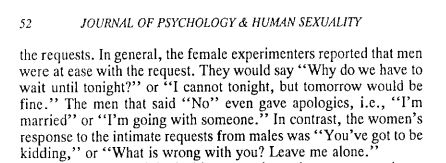|
How Would You Counsel Darth Vader: Let’s imagine, just for fun, that I’m sitting in my office when the phone rings and on the other line is Master Yoda wanting me to take a referral by the name of Anakin Skywalker. Of course, I’m glad to help I would say. Troubled youth is, as Obi Wan would say, my specialty! Let’s first have a look at the history: Anakin Skywalker was born to a single mother of low socioeconomic status. This puts him at an automatic statistical disadvantage. The children of single mothers are much more likely to do things like develop drug problems and engage in criminality than a child whose parents are together. At the age of 9, he is voluntarily taken from his mother by a pair of Jedi to learn the ways of the force. 10 years later, he finally returns to his home planet (they have spaceships that can traverse galaxies but they don’t have cell phones to call your momma?) only to find that his mother has been abducted. He finds her strung up in a teepee by native nomads, to which she quickly dies as soon as he cuts her free while still in the teepee. He then goes on a killing spree, laying waste to the entire village. Not awesome… Anakin blames himself for his mother’s demise. No one intervenes. You would have thought that the well-developed Jedi establishment would have mental health checkups, or psych assessments, or counselors on retainer, or SOMETHING, but instead Yoda and the rest of the Jedi tell him something to the tune of “snap out of it, bucko” and the drum of a developing mental illness marches on. Flash forward a couple years later and sure enough we have an arrogant narcissist being fed sweet nothings by the main Sith Lord himself. Arrogant narcissists are typically overcompensating for insecurity somewhere in their lives, you know, things like being born to a single slave mom and having her killed by nomads in teepees doesn’t exactly have the same social class ring as say… Queen Amidala, who, oh-by-the-way he secretly marries! Social envy much? The future Emperor Palpatine takes advantage of this insecurity by sowing seeds of mistrust between Anakin and the Jedi. Dark times are a-comin’. Now, let’s say that before he actually goes psychopath and kills all the Jedi and becomes Darth Vader I take the call from Yoda (I am imagining this to take place sometime between Episode II and III to give you some reference) and begin hypothesizing how the sessions will go: I imagine my first meeting would be something to the tune of me asking questions about his history and receiving halfhearted answers from a boy who is being forced into my office in the first place and not quite willing to be completely forthcoming with answers, much less cooperate in a sensible way. So how would I break past that? I don’t. I let the client break past that on their own. You see, with this discipline, the client has to want to get help. We can’t force them. It’s not like medicine where we can put our clients under anesthesia and save their lives in spite of their willingness to cooperate. In psychology, if the client doesn’t want to advance, there will be no advance. What a good counselor will want to do is to explain to the client that he understands that this meeting is forced, and that we don’t have to do anything that young Master Anakin doesn’t want to do, but since you are here already kind sir, you might as well get something out of it. At this point, the future Dark Lord of the Sith may begin to open up a little, but more than likely I will staring at a cold glare and saying something to the tune of, “well we don’t have to do anything if you don’t want, if you don’t mind I’m going to finish up on some paperwork from earlier. You can take a nap if you like until the hour is up and then you can go.” This might go on for quite a while, but one thing I can promise: Inside the brain of our young Padawan learner you would see spinning wheels, and those wheels will be spinning towards the thought of whether there is anything to be gained by talking at all to this counselor guy. You see, narcissistic clients and most clients that are forced to come into counseling are like cats. You can’t chase them, because all they’ll do is run. But a narcissist, just like a cat, ultimately can’t live without attention. So eventually they will break down and begin to tell you things and you can begin the steady process of building rapport and trust in the counseling environment. For some it takes a long time to be able to build that relationship. But a good counselor should have the discipline to understand this and not try to force the action, but rather allow space enough for the client to gain comfortability in their own time. So though Anakin’s glares were intense in the beginning, so was my resolve to not be flummoxed by them. Then we can start talking about his past, and the core components which have been left unresolved. Most importantly, the disconnect between what happened with his mother and where he came from. In the next installment, we’ll talk about helping poor Master Anakin process his past and become a Jedi Master of the moment. Chase Chick MPA LPC is CEO and co-founder of Beyond the Gray Sky, whose brands include Pursuit of Happiness, Dallas Psychology Review, and Luxe Media Productions.
There was once a research study that wanted to know how susceptible people were to various random pickup attempts where there had been no prior introductions. In the study, 5 males and 5 females rated fromslightly unattractive to moderately attractive (it was found that the attractiveness level in this study did not have an effect on outcomes interestingly enough), ran around campus and said one of three randomly selected sentences to random members of the opposite sex. The first sentence was always, “I have been noticing you around campus. I find you to be very attractive.” This was followed by one of three questions. “Would you go out with me tonight,” “Would you come over to my apartment tonight,” and the fan-favorite “Will you go to bed with me tonight?” For our amusement, the number of slaps was not recorded. But the researchers did record the number of yesses and nos. As you would expect, this last approach was not very successful… for men. For women, it was almost comical how receptive their male subjects were to “will you go to bed with me tonight.” The men didn’t fare quite as well with that line. Here's an except of some of the responses: Fortunately for us dudes, another research study was hatched that wanted to uncover what was the most effective way for us to approach members of the opposite sex. The answer? Simply walk up to them and say one simple thing: “Hi.” That’s it! No black magic, no horse and pony show, no creativeness required. A simple “hi” is your best chance. Wonderful isn’t it? So go get’em tigers! For women, sad to say, but your best chance at success (at a greater than 90% rate) is to say “will you go to bed with me tonight?” Obviously I must now offer a disclaimer: Don’t do that! Hopefully you already know not to do thisJ Here’s a link to one of the studies if you are interested. Don't forget to subscribe to our FREE Google Currents edition of Dallas Psychology Review by clicking on the link below: Chase Chick MPA LPC is CEO and co-founder of Beyond the Gray Sky, whose brands include Pursuit of Happiness, Dallas Psychology Review, and Luxe Media Productions.
Sigmund Freud, a certain intellectual heavyweight in his heyday, once described babies as evil because they continuously give in to their “id” or their innate and unrepentant drive to satisfy their basic human needs. In response, in 1927, celebrated developmental psychologist Jean Piaget retorts: “Babies are … obviously narcissistic, but not in the way adults are, not even Spinoza's God, and I am a little afraid that Freud sometimes forgets that the narcissistic baby has no sense of self.” Let’s dive in shall we? Human beings are far and away the dominant species in the world. Though deposable thumbs are a unique advantage that we share with monkeys and certain other types of animals, our primary superiority is in our intelligence. But our intelligence requires a large brain. And since human females are not large enough to allow for a huge brain to come out of them during the birthing process, there had to be some sacrifices made. When we are born, our brains are underdeveloped by quite a lot. Thus, as babies, we are helpless when compared to most animals who, at birth, are capable of a range of tasks from the outset. For instance, baby horses are often galloping around day-of, and there are some varieties of birds (whose specific names escape me at the moment) that are capable of flight within hours of hatching. In contrast, human beings are incapable of independent living for years (sometimes even decades). It takes them several weeks in some cases to even hold their heads upright. But are babies evil? As babies, when we want something, we scream our heads off for it. We want our needs met right away, and we aren’t afraid to make fools of ourselves in public in order to achieve our whims. Describing baby behaviors definitionally, it seems that human babies have no qualms about engaging in highly narcissistic and indulgent behaviors with a complete disregard for the consideration of others. If we described an adult in this way, we might also call that person a psychopath. Freud hypothesized that we are born evil, and learn goodness. Where you fall in depends on how you view evil and morality. Take the cheetah for example: Obviously, the cheetah’s brain is not up to par with a human brain. They don’t discuss geo-political politics with each other, and they aren’t embarrassed about being naked in front of members of the opposite sex in broad daylight. But like a human, cheetahs have needs, and when the cheetah feels hungry, this animal isn’t going to have a whole lot of internal dialogue on the morality of whether chasing down and eating gazelles alive is right or wrong. The cheetah wants meat, the gazelle has meat, so in order to get that meat the cheetah kills the gazelle. There’s really no negotiating process about this transaction. But as adult humans we are much more selective about giving in to our desires. If we see someone else on the street, and we think that this person has money, we aren’t going to just chase the person down and eat them alive in order to get their money. Our developed human cortex helps us sort out the reasons why. A baby is different. Babies learn behaviors as their cortex (the outermost portion of their brain) develops. The inner parts of the brain are already there because they are necessary to keep us alive and just small enough for mothers to safely give birth, and these are the parts that control simple things like heartbeat, breathing, and appetitive behaviors such as satiation. So when a baby screams for milk, they simply do not have the brain capability to develop a compelling plan on how to get that milk. Also, we know that baby brains are incapable of long term memories until around the age of three. So you could theorize that they are not self-aware just yet. Think about it… can you remember anything prior to the age of three? In the famous horror movie Halloween, Michael Myers is described as someone who is more akin to a body with no one behind the wheel. I don’t know about you but the thought of this creeps me out. For babies, is there anyone behind the wheel so to speak? But we asked the question, are babies evil. Indulgence is described in many religions to be sinful or evil. Contrasting with Christianity, which teaches restraint and conservation, Satanism (which most would consider evil) teaches to indulge in whatever you feel like. So since babies can readily be described as hyper-indulgent, are they evil? I would have to say yes and no, and your mileage may vary depending on what types of philosophies describing morality you subscribe to. Personally, I believe that evil is more the absence of goodness, just as darkness is the absence of light rather than an actual physical entity. Likewise, chaos is the absence of order. So for babies, since they are clearly indulgent, my own personal view would be to describe them as simply lacking the capacity for human moral goodness due to their underdeveloped brain capability. Through their ability to learn to bring forth order into their worlds, we shine light on what we call goodness, and there remains the human soul, that spark of consciousness from which we derive the experience of reality. So in my view, when we describe human development, we are looking squarely at the development of the human soul, and our intellectual capacities for goodness thereof. Consciousness is the key, and I believe that free will is the greatest gift in all the universe. Don't forget to subscribe to the FREE Google Currents edition of our magazine, Dallas Psychology Review. Please follow the link here: Dallas Psychology Review. Chase Chick MPA LPC is CEO and co-founder of Beyond the Gray Sky, whose brands include Pursuit of Happiness, Dallas Psychology Review, and Luxe Media Productions.
It's that time again! We love giving stuff away for free. It's like Christmas! The best Christmas present is the one given!
Our friends at Luxe Media Productions has agreed to give away a free photoshoot. These are the pros undertaking our new magazine: Dallas Psychology Review. Check out their work here. This contest will also be shared on their webpage. Here's the only catch: This contest won't be considered active unless we have 100 or more total entries. If we get less that 100 entries, no winner. Sad face. So start sharing away and win something! Counseling isn’t like a regular medical practice. In medicine, it doesn’t matter whether or not you like your doctor. If you’re sick, your doctor can cure you and you can still hate them. Doesn’t matter. If you’re deathly ill and go to the ER, you may not even have a clue who your admitting doctor may be. He could be the worst person in the world, and it wouldn’t amount to a hill of beans because that vile doctor can still save your life whether you like it or not. In psychology, whether or not you like your counselor matters. A LOT. If you don’t like your counselor, you may have a much more difficult time confiding in him or her. If you don’t like your counselor, you may be more reluctant follow the guidance that they set forth. Research shows that you are also more likely to end up suing your counselor if you don’t like them. Best advice: before you pay money to sit down and talk to someone once a week for an hour, research that person. Read their blogs. Find out what kind of clients they like to take. If they offer free consultations, take advantage of that. Choosing a counselor is like choosing someone to marry, you aren’t going to be able to do this an infinite amount of times so you gotta make it count. The more you can match yourself with your counselor the better, and you will generally find better results. Counseling can be a life changing experience, or it can be a gigantic waste of time. Make sure to find someone with whom you can connect. Chase Chick MPA LPC is CEO and co-founder of Beyond the Gray Sky, whose brands include Pursuit of Happiness, Dallas Psychology Review, and Luxe Media Productions.
Communication It may seem obvious, but being able to properly communicate with your mate is something that a shocking percentage of people fail to do appropriately. When disagreeing, take the time to really hear what the other person has to say. Be sure to use “I” statements rather than “you” statements. For example: instead of saying “you always drink too much beer” you can soften the blow by saying something like “I feel like your beer drinking is too much.” If you take the time to consider the other person’s perspective, the disagreements you might have will be much less volatile. Never underestimate the value of displaying empathy. Romance Try to never forget that you are in fact in a romantic relationship. Small acts count. Chivalry counts. Courtesy counts. Any little thing you can think of to romance your mate will go a long way in maintaining the state of the relationship. No reason hugs and kisses. Compliments. Go out of your way to do something nice. Putting a smile on the face of your mate will inevitably put a smile on yours. Spacing Even something as seemingly safe as water can kill us if we drink too much of it. Relationships are the same. Your mate appreciates being able to share what they did during the day and how their day went, but if you are calling 15 times in an hour then you may want to have a stress pill and think things over. Find what types of things work with your mate and how much. If you can’t figure it out on your own, don’t be afraid to simply ask. Your mate will appreciate that you have an interest in keeping up a good relationship. Chase Chick MPA LPC is CEO and co-founder of Beyond the Gray Sky, whose brands include Pursuit of Happiness, Dallas Psychology Review, and Luxe Media Productions. A new research study out of Sweden makes the claim that if you have a mental illness, you are more likely to be murdered. Interesting… Let’s break this down a bit: The researchers used databases from the Swedish government to identify people with mental illness and cause of death among the entire Swedish adult population from 2001 to 2008. Lead author Dr. Casey Crump says that the results of this study are consistent with similar studies. To be specific, when compared with a control group: · Drug users are 9 times more likely to be murdered · Those with personality disorders run 3 times the risk · Depression patients run 2.5 times the risk · Anxiety and schizophrenia run twice the risk A link to the study can be found here As an interesting aside, In Sweden (where this research study was done) you are 5 times LESS likely to be murdered overall when compared with the United States. So why are you more likely to be murdered if you have mental illness? Here are some likely contributing factors: SES: People in lower socioeconomic status groups share a couple things with mental illness. For starters, if you are a lower SES, you are more likely to have mental illness. The more debilitating mental illnesses (schizophrenia, bipolar, drug abuse) have a much more difficult time finding and maintaining work, so it would be no surprise that they have less income. Also, lower SES groups and mental illness share a genetic heritage in that both groups are more likely to experience the same plights in life (here: mental illness and low SES) as their parents. Dangerous Situations: For drug abusers, this is obvious. In order to get drugs, you inevitably have to deal with Shady McShadesters, and we know that these people are not always completely stable. Combine that lack of stability with the fact that these drug dealers are also more likely to be dealing with some type or combination of mental illness themselves with the additional factor of their potentially being armed, and we can quickly see where this is a much more volatile situation than sitting on the couch and watching sitcoms. In the case of many other types of mental illnesses, one common factor is that they have a more difficult time controlling their emotions. Thus, their arguments and altercations may be much more susceptible to a heightened level of intensity, and the people in which these altercations are involved are probably more likely to want to harm them given the circumstances. Criminality: A sad fact of US care for the mentally ill is the running joke that the biggest psychiatric institutions these days are jails. Chronically low functioning mentally ill have very little resources in our country, especially in Texas, and what little resources there are will often be found to be rationed in the name of budgetary concerns. So what we find is that rather than finding solace in treatment centers and hospitals and receiving proper care, these poor folks are out committing crimes, sometimes purposefully so they can be arrested for the simple fact that jail is a roof over their heads and food available. Committing crimes however, puts these people in dangerous situations, raising the likelihood of harm befalling them. To summarize: until we get more serious about mental health as a society, all of these sad statistics we will continue to see. Mortality rates that are significantly elevated when compared to the general population will continue to be a fact of life. Proper counseling and psychiatric care can do wonders in mitigating these statistics. And proactive approaches like mental health checkups can do wonders for helping to make sure that problems are caught early, treated properly, and not left to swell into larger issues that by and large were completely preventable. Chase Chick MPA LPC is CEO and co-founder of Beyond the Gray Sky, whose brands include Pursuit of Happiness, Dallas Psychology Review, and Luxe Media Productions.
Why We Scream at Stupid Drivers: But Don't Scream at People Standing In Line Next To UsYou know that guy you screamed at and maybe even flipped off who jumped in front of you off on the freeway? Now let’s consider an honest question: If that guy had maybe absentmindedly wandered in front of you in the line at the DMV, or maybe someone got out of control down the slopes coming into the line at the ski lift and got in front of you, would you be as likely to raise such a stink? Unless you are the fightin’ type, the kind of billy bad boy who wants to fight everyone they see, then you are likely going to be like the vast majority of people and maybe mumble something under your breath, but that’s about as far as you are going to take things. So the question is: why are we such lunatics behind the wheel, and nowhere near as contrary in person? The danger threshold. There is a correlational relationship between how likely we are to actually put ourselves in danger, and how likely we are to mouth off. In the DMV line, you are face to face with the unwise person whose actions have irritated you. If you were to have the same reaction as you did in the car – screaming profanity and waving your hands around like a loon – the possibility of you finding yourself in the throes of a knuckle sandwich delivery match suddenly becomes much more real. In the car, or even screaming at Tony Romo on the TV and telling him what an idiot he is, is much easier to do when we are safely removed from the possibility of danger. I’m no Dallas Cowboy, but I’d be willing to bet that Romo’s teammates aren’t screaming the type of insults that you are at him while they are on the sideline. You might have noticed that females are much more likely to mouth off verbally at each other than males are. There’s a reason for that. Females are much less likely to have a physical altercation. So there danger threshold is reduced. Males aren’t so lucky. If we insult each other’s sexual promiscuity for example, we may actually have to fight each other, a prospect that we have learned to consider before the mouthing begins. The Danger Threshold's prime directive is thus: there is an inverse relationship between your willingness to mouth off and the amount of danger said mouthing off is likely to cause you to encounter. So next time you are banging your steering wheel and using words that are not grandma-approved, consider this article. It’s not that you are a coward, you are simply exercising your learned reactions within the framework of the danger threshold. So chill out road rage-aholics! Chase Chick MPA LPC is CEO and co-founder of Beyond the Gray Sky, whose brands include Pursuit of Happiness, Dallas Psychology Review, and Luxe Media Productions.
|
Andres D.
President, Pursuit of Happiness
Chase C.
CEO, Pursuit of Happiness Archives
September 2013
Categories
All
|
|










 RSS Feed
RSS Feed
